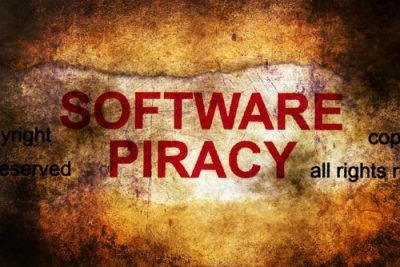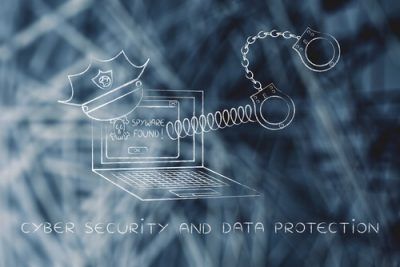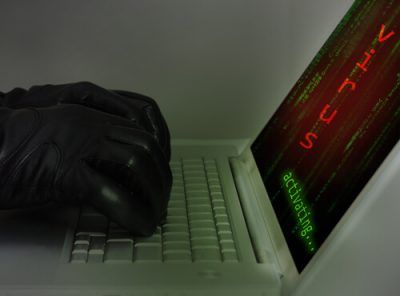
The UK punishing pirates and piracy websites with the most severe punishments should not be news to anyone.
Right now the main focus is on technologies such as Kodi.
Kodi started out as an open source media player that played all kinds of files.
Slowly but surely, third-party Kodi add-ons transformed Kodi and then Kodi became the hub of piracy and copyright infringement.
Why would the government in the United Kingdom care about Kodi?
Surely there are more pressing matters right?
Apparently not.
Apparently, Kodi has really taken off in the United Kingdom market.
Not only that, people are now selling these Kodi devices that play any content in the world that a user could want.
Anytime the user wants.
Anywhere the user wants.
All without paying a single dime if we take out the price of the Kodi device.
And since it has become such a profitable business in the United Kingdom, the government has decided to step in.
Actually the government had been in the thick of the action for quite a while.
But there is a new player in town now.
Of course, we already know that the United Kingdom government is very keen on increasing the punishment for online piracy.
More like ten years in jail type of punishment for even the slightest hint at copyright infringement.
The latest injunction from the United Kingdom High Court is no different than before.
Primarily, it targets users who are involved in Kodi piracy.
This new injunction, to say the last, is scary in more ways than one.
Interestingly enough, this is perhaps the first time you can’t really say the UK government wants to punish pirates.
This time around, it is the United Kingdom’s Premier League organization that wants to keep a check on people who use live streams to access football games.
The new injunction is strictly a piracy blocking on.
The UK’s Premier League obtained it a few weeks ago and many are already calling it a groundbreaking one.
If one goes into a bit more detail one can see why some people are considering it groundbreaking.
Table of Contents
The New Injunction Is Groundbreaking On Several Levels

Recent courts papers have revealed the nature of these injunction to be rather strict.
Before we get into the dirty details, you will probably want to know this about some of your favorite channels.
The Premier League in the UK worked closely with broadcasting stations such as Virgin, BT, and Sky to come up with the injunction.
There is no need to mention here that all of these broadcasting channels have a vested interest in bringing the injunction into fruition
Realistically speaking, what else can a channel do?
The main source of income for any channel is the advertising deals it signs with different companies.
The companies then show these advertisements to us while we watch the content of the said TV channels.
And the channels make money.
Simple enough right.
Here Is How You Wreck A TV Channel’s Revenue Model
You wreck it when you watch a stream of any given sporting event on the internet.
Without paying a dime that is.
Of course, there are legitimate ways of streaming your favorite content online as well but who cares right?
Well, the trio of Sky, BT and Virgin obviously care.
They care a lot in fact.
Otherwise, why would they assist The Premier League in coming up with the injunction?
Surprise Surprise.
TV channels wanting to get rid of pirates who stream copyrighted content and distribute it to others using technologies such as Kodi is a no brainer.
They depend on people not watching free streams online for their survival.
But what about internet service providers?
What do they have to do with this?
If you really think about it, they aren’t even in the equation.
Unless they want to force a way in, there is no reason for internet service providers to get involved in this situation.
But as it turns out they have.
In fact, they too have worked closely with The Premier League.
How?

In turns out, these internet service providers monitored online traffic from known pirate servers.
These servers were requested by some of their customers in order to view copyrighted content.
In short, the new injunction will be able to block all kinds of streams.
It isn’t directly mentioned in the court papers but it is certainly a possibility.
And have we mentioned the fact that there is little mention about immediate court supervision?
The Premier League Moves Into Action
We’ve already mentioned that The Premier League was able to secure a new High Court injunction last week.
The new injunction, as some media reports have revealed, will enable The Premier League to do some pretty drastic things.
Things like blocking streams.
But not just any streams.
Of course, you could jump to one of the thousand sites that are offering live streams for free (sometimes).
The specific streams in question here are the one that people view via Kodi and similar devices.
You already know that copyrighted content is delivered as a part of public service through devices such as Kodi.
The real question is, whether this new injunction is new in its entirety or part of some previous stream-blocking court orders.
The answer to this question wasn’t clear enough a week ago.
Back then, most reporting on the issue through that the new injunction was something completely new.
And that its scope was beyond what had been ordered by the court earlier.
But copies of the injunction which have made the rounds in the media now suggest otherwise.
After doing a bit of reading ourselves, we can say that the new injunction is something special indeed.
How come it is special?
Of course, you’ll have to read the entire thing yourself in order to truly understand the new injunction.
But if you don’t or can’t then you can go ahead and read our take on the new injunction.
The new Kodi injunction has some pretty rough claws depending on how you look at it.
What Are The Terms Of The New Kodi Injunction

We’ll get to that in a bit.
First, there is something else that is even more significant than the injunction itself.
That is, the ramifications of the injunction.
Because of the injunction, it is no longer a far-fetched idea on how internet service providers could control the internet.
What are we talking about now?
We’re talking about a future where internet service providers don’t just provide internet services.
They are effectively the gateways into the infinite cyber world.
Plus, internet service providers are also content providers.
Content providers with vested interests that is.
In this, possible/probable, future internet service providers will also be able to decide what content subscribers to the service can and cannot view through the internet.
Sound scary enough?
Yes.
Because it is the future.
Not the present.
Let’s head back there right?
Broadly speaking, as we have mentioned before, The Premier League wants to stop pirates and piracy sites.
The Premier League wants to do that by stopping the public for viewing unofficial live streams.
We say unofficial, but what we really mean is unauthorized live streams of different sporting events.
In The Premier League’s case, it is the streaming of its soccer matches online.
Why People Don’t Want To Pay For The Premier League Matches
People all over the internet try to watch The Premier League soccer matches online for a variety of reasons.
Some don’t’ have the time to go out and watch the match themselves.
They have the TV set of course, but who wants to pay for a TV service or cable subscription.
Since it is so expensive.
Not the customer’s fault really.
But there are people who simply do not want to spend money on watching football games.
And why would you since you couldn’t possibly know how the match would turn out.
You could be a Manchester United fan and watch an away game of Manchester United at Chelsea.
After a total of ninety minutes, you find out that not only did your Manchester United didn’t score any goals, but conceded just one to lose the game to Chelsea.
In short, you wasted time.
Two of three hours of your life that you will never get back.
In short, people don’t want to pay up for matches that aren’t likely to be entertaining all the time.
Hence, they take the shortcut.
This shortcut comes in the form of Kodi devices.
And that’s what The Premier League wants to stop.
It want’s to stop this vicious cycle.
Kodi Is The King When It Comes To Watching Soccer Games Online In The UK
The actual use of Kodi isn’t illegal but people make it illegal by accessing copyrighted content.
Many people use Kodi and other such similar devices to get a hold of live streams that show The Premier League football games without asking for money.
In order to get every feature and addon possible on kodi and to not get sued if you accidentally watch something pirated, you need a VPN. You can find the 5 best VPN’s for Kodi here.
To sympathize with the officials working at The Premier League, their job is hard.
And that job is made even harder because of the fact that most streams are live.
Once the event is over, no one really cares what the score was or what did it signify.
In other words, if The Premier League wants to stop streams, it has to stop live streams.
This means, moving quickly enough to block all live streams before all people in the UK start watching it online and they lose a lot of money in advertising money.
The problem of shutting down live streams is indeed unique.
And by the looks of it, The Premier League has finally found a unique solution to its unique problem.
What Does The Court Injunction Say?
The court injunctions say that all of the Defendants have been involved in negotiations over the terms of the Order, with the result that the wording of the Order was agreed.
Let’s explain that a little bit for further clarification.
The new injunction is clever within itself.
How?
It is clever because it doesn’t target websites like before.
Instead, the new injunction tries to go after the servers that enable people to stream copyrighted content.
Consequently, to move ahead with the court orders, one has to block the IP address of all online streaming servers.
It is a known fact that most of the servers that enable people to stream copyrighted content are located outside the UK.
Mostly in Europe, in countries where piracy laws aren’t as strict as in the UK.
What Did The High Court Say?
The High Court seems to know quite a bit about how streaming works.
And perhaps it should if it wants to come up with an injunction which is from the 21st century and not the 1800s.
Hence the High Court noted that a timely response was important in the case of Premier League matches for the simple reasons that to be effective, any intervention must take place during the course of a given football match.
The court further pointed out that the operators of online streaming servers regularly altered the IP addresses from which the servers operated.
The Premier League Has Finally Taken Things Seriously
The Premier League didn’t just go to the High Court and presented its evidence of Kodi piracy.
The institution first third an anti-piracy company.
We can’t tell you the name of the company since it is still unknown.
The anti-piracy company was brought in to monitor all the streams that uploaded copyrighted content.
This monitoring process continued for several weeks.
And guess what?
The anti-piracy company was able to identify a large number of IP addresses.
These IP addresses weren’t just IP addresses.
These IP addresses pointed towards locations from where the copyrighted content was streamed and made available to the public for viewing.
For here the problem became a simple one for The Premier League.
The association moved ahead and identified the smaller subset of the online server that streamed copyrighted content.
These are the servers that the FAPL now wants the court to block.
You may be wondering about the criteria the FAPL used to select streaming servers.
But you should stop.
Since the court has not disclosed that particular piece of information.
In other words, those details are a secret.
In official words though, the details cannot be made public because if they were it would make it easier for the Order to be bypassed.
Cut Through The Chase. What Does This Injunction Mean?
Well, first of all, this injunction should be taken as a sign rather than an order.
The sign is clear.
Intern service providers have the freedom to become distributors of content rather than just outlets to the internet.
Internet service providers aren’t providing information anymore.
They are also deciding which information can their subscribers view and share.
Of course, all of this sounds great for the likes of BT and Sky because they pay a lot of money for copyrighted content.
And their cooperation with The Premier League and Internet Service Providers is perhaps justified.
Basically, you have these three big companies who have joined forces to stop people from streaming stuff free through online channels.
The only problem is the way they have done it.
Of course, they have gone through formalities such as going to the court and getting an injunction.
But where was the oversight?
Where was the discussion that had parties from all sides of the situation?
In other words, they have not provided any opportunity to the people to criticize this injunction or the initial move.
Will this injunction get the job done?
Only time will tell.
But for pirates and piracy websites, the UK is fast becoming the next North Korea.

